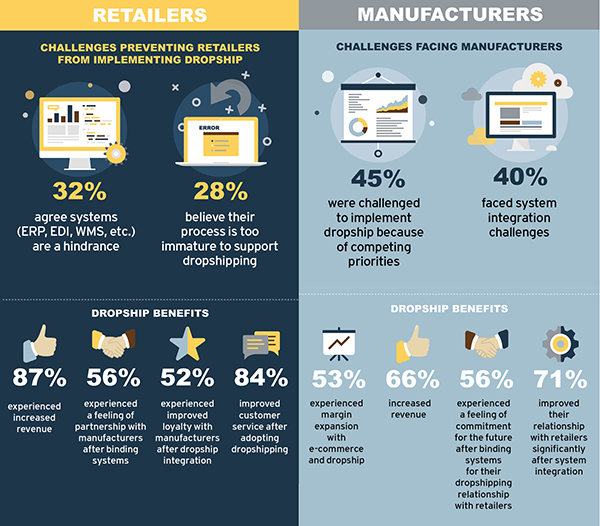How Evolving Consumer Behavior impacts Global Supply Chains

The impact of evolving consumer shopping behaviors on retailers and manufacturers is the focus of a new supply chain study by DiCentral, a B2B integration services provider, along with the Center for Supply Chain Research at Lehigh University.
The study, Supply Chain Collaboration in Transformative Vertical Industries: Implications of Omnichannel and Dropshipping, examines the motivations, challenges, benefits, and supply chain implications of online shopping and home delivery from the perspectives of more than 180 C-level executives, vice presidents, and senior managers in both retail and Consumer Packaged Goods (CPG) manufacturing.
Study participants share the operational and financial implications associated with the journey from brick-and-mortar stores to online e-commerce, particularly with regard to home delivery and order fulfillment models in which products are shipped directly from the manufacturers and the retailer no longer carries the physical inventory.
The study also describes the efforts being made to keep up with the pace of change, the technological investments necessary to accommodate the change, and the benefits and risks associated with this new online retail reality.
The study suggests that retailers and manufacturers that have adopted a high degree of electronic collaboration have benefited most from dropshipping.
Retailers gain increased visibility into the manufacturers’ behaviors which, in turn, increases the retailers’ confidence that products ordered are acknowledged and shipped within the promised time frames. Barriers to achieving this goal include a lack of executive involvement and budget constraints (among other factors), but retailers overwhelmingly point to a lack of systems integration (EDI, ERP, WMS) as the biggest barrier to dropship implementation. Manufacturers’ largest barrier was competing priorities followed by lack of systems integration.
While manufacturers share many of the same goals as retailers, they have the additional pressure of supporting volume growth and fulfilling orders quickly and accurately. Despite this, 66% of manufacturer respondents indicate that dropship implementation has already led to increased revenue, particularly those that provided dropship for no more than 40% of their total business.
Both retailers and manufacturers face several key challenges to keeping up with consumer expectations. Although the research clearly demonstrates that successful e-commerce and dropship programs are highly correlated to the level of collaboration and technology integration between the manufacturer and retailer, 46% of retailers are reluctant or unable to share e-commerce sales forecasts with manufacturers.
